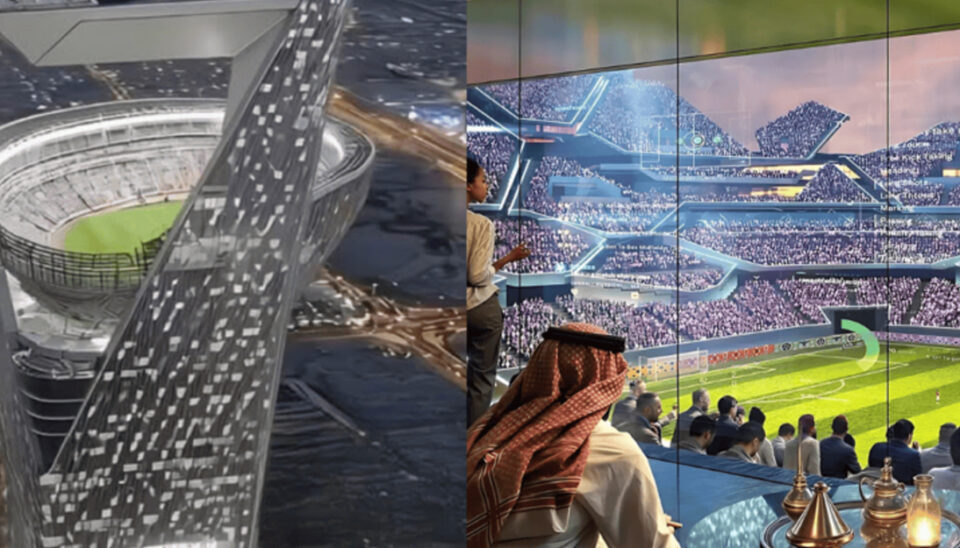Rabat – Saudi Arabia has revealed plans for a groundbreaking football venue called the “Neom Sky Stadium,” designed to host matches during the 2034 FIFA World Cup.
The stadium will be built 350 meters above the desert floor, making it the highest football arena ever constructed. It will be part of the futuristic Neom megacity, specifically within the linear city known as “The Line.”
Saudi Arabia to Build World’s First Suspended ‘Sky Stadium’ Ahead of 2034 World Cup
Saudi Arabia has unveiled plans to construct the world’s first “sky stadium,” a groundbreaking venue that will hang 1,150 feet above the ground.
— Instablog9ja (@instablog9ja) October 28, 2025
The stadium will seat around 46,000 spectators and will cost an estimated $1 billion. It will be powered entirely by renewable energy (solar and wind).
This aligns with Saudi Arabia’s Vision 2023, which focuses on sustainability, innovation, and reducing the reliance on fuel energy.
Access to the stadiums will be via high-speed elevators and autonomous transport pods, offering fans a unique panoramic view of the desert landscape.
The venue will also feature advanced technology, including AI-powered systems, augmented reality, and enhanced acoustics to improve the live match experience
Construction is expected to begin in 2027 and finish by 2032, two years before the World Cup kicks off.
The stadium is likely to host matches up to the quarter-final stage, depending on the FIFA approvals
After the tournaments, the NEOM sky stadium will serve as a multi-purpose venue for sports and entertainment events. There is also a potential for it to become the home ground of a future NEOM-based football club
Saudi Arabia officially secured hosting rights for the 2034 FIFA World Cup in October 2023 after being the only nominee
Concerns about the stadium
Despite its futuristic appeal, the NEOM Sky Stadium project has raised concerns among experts.
Building a stadium 350 meters above ground raises major engineering and safety challenges, especially in a desert environment.
Additionally, questions have also been raised about the timeline, as construction is expected to begin in 2027 and finish by 2032, leaving little room for delays ahead of the 2034 World Cup.
Additionally, human rights groups have criticized aspects of the broader NEOM development, including labor conditions and the displacement of local communities.

